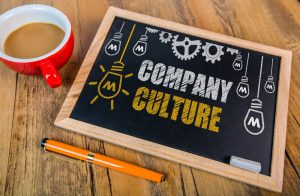The changing landscape of the world of work in the ongoing wake of the COVID-19 pandemic has fundamentally altered workplace culture in many ways. Moreover, given the significant amount of time spent in the COVID era and shifting employee and employer preferences, it’s unlikely workplace culture will ever fully return to its pre-COVID form.
 The specifics of just how much things have changed are being illuminated as companies and research institutions dig deeper into the massive amounts of available data, such as employee surveys and company analyses. In September 2021, O.C. Tanner, a leader in employee recognition and workplace culture, released the findings from its 2022 Global Culture Report, a yearlong, international study on the current status of workplace culture, based on data gathered from over 38,000 employees and leaders in 21 countries around the world.
The specifics of just how much things have changed are being illuminated as companies and research institutions dig deeper into the massive amounts of available data, such as employee surveys and company analyses. In September 2021, O.C. Tanner, a leader in employee recognition and workplace culture, released the findings from its 2022 Global Culture Report, a yearlong, international study on the current status of workplace culture, based on data gathered from over 38,000 employees and leaders in 21 countries around the world.
Key Findings from Global Culture Report
Some of the key findings from O.C. Tanner’s Global Culture Report include:
- 45% of employees say the number of individuals they regularly interact with at work has decreased significantly over the past year; about 33% feel disconnected from their leaders.
- Organizations increase their likelihood of improving the employee experience by 7.5 times when they meet employee needs for autonomy, connection, and mastery.
The report outlines some crucial elements of successful hybrid employees’ experiences:
- Career development programs: 68%
- Flexibility to choose the number of days worked remotely: 65%
- Clear expectations for availability when working remotely: 65%
- Opportunities for in-person social connections with coworkers: 58%
Five distinct employee personas emerged through the study, each with its own general focus, work style, and self-esteem. These are Socializer, Tasker, Builder, Coaster, and Achiever.
- Socializer: Outgoing and driven—these employees are motivated by fun and rewards.
- Tasker: Quieter and more composed—these employees are motivated by rewards but are resistant to feedback.
- Builder: Warm and friendly—motivated by goals, fun, and rewards.
- Coaster: Pessimistic and prone to stress—motivated by rewards; avoid punishment.
- Achiever: High-energy, but moody—motivated by fun and rewards; avoid punishment.
Your workforce is likely made up of employees in all of these groups. It’s important to recognize these types and reward them appropriately based on their preferences.
The World of Work Has Changed … Forever
To help employees be most productive and engaged in this new and continually evolving environment, organizations will need to shift their areas of focus inward and create a new culture of connection. “The former concept of workplace ‘normalcy’ left the building in March 2020, and it’s not coming back,” says Gary Beckstrand, Vice President of the O.C. Tanner Institute. In this new landscape, Beckstrand says, employers need to work to help employees “feel connected to purpose, accomplishment, and one another—no matter where or when they work.”
